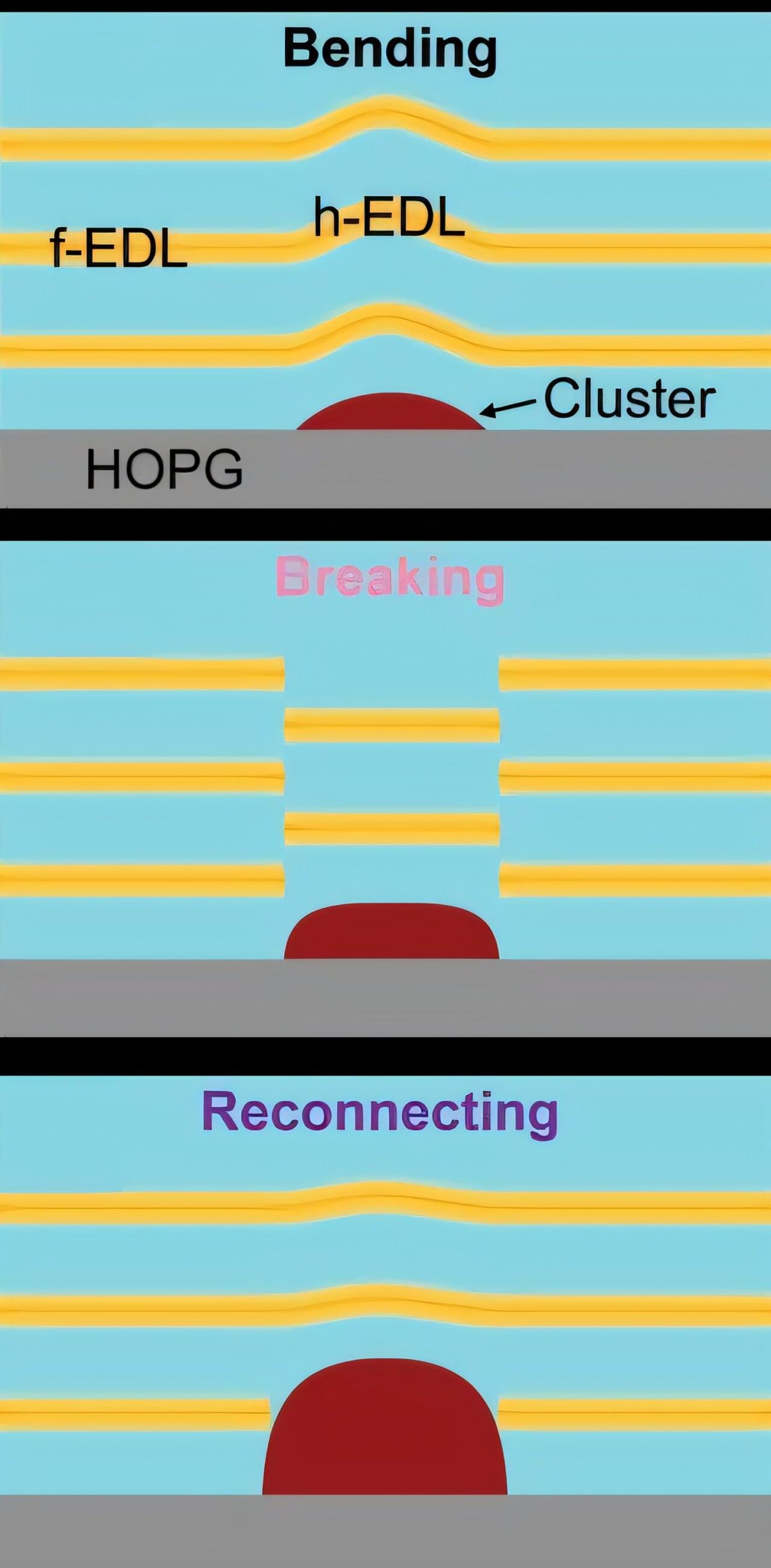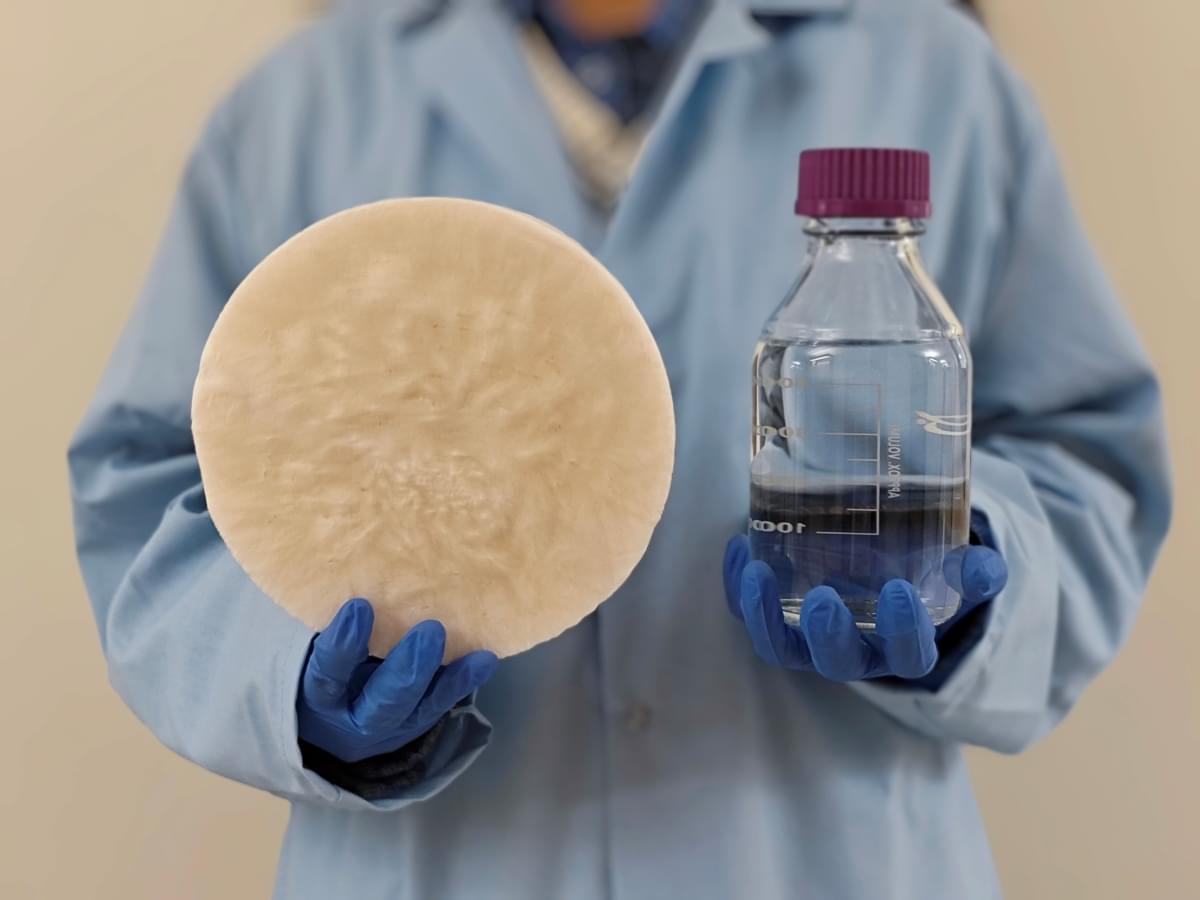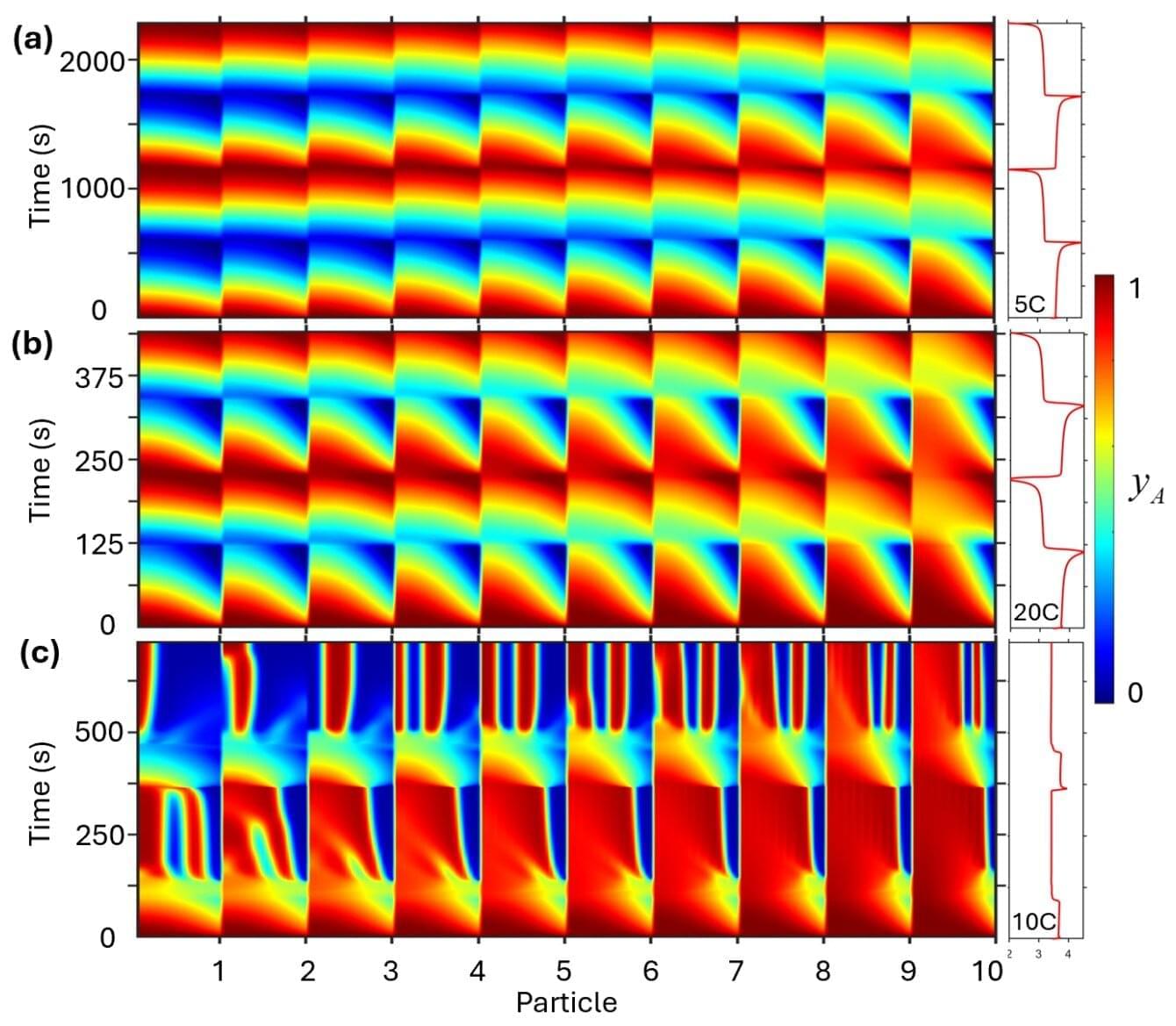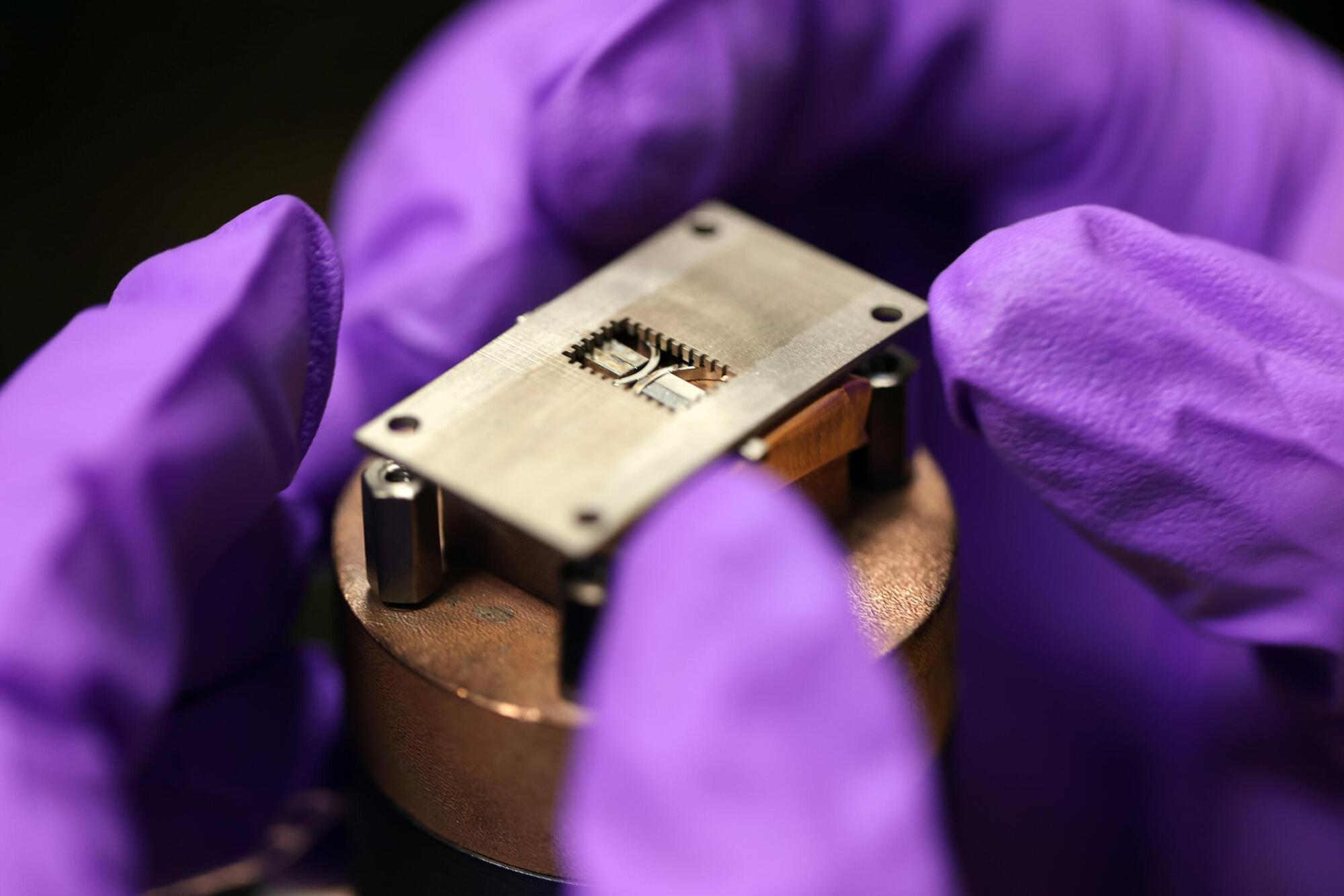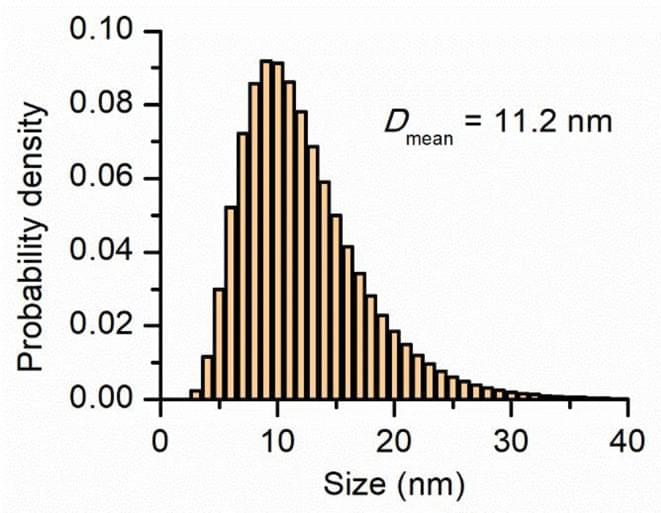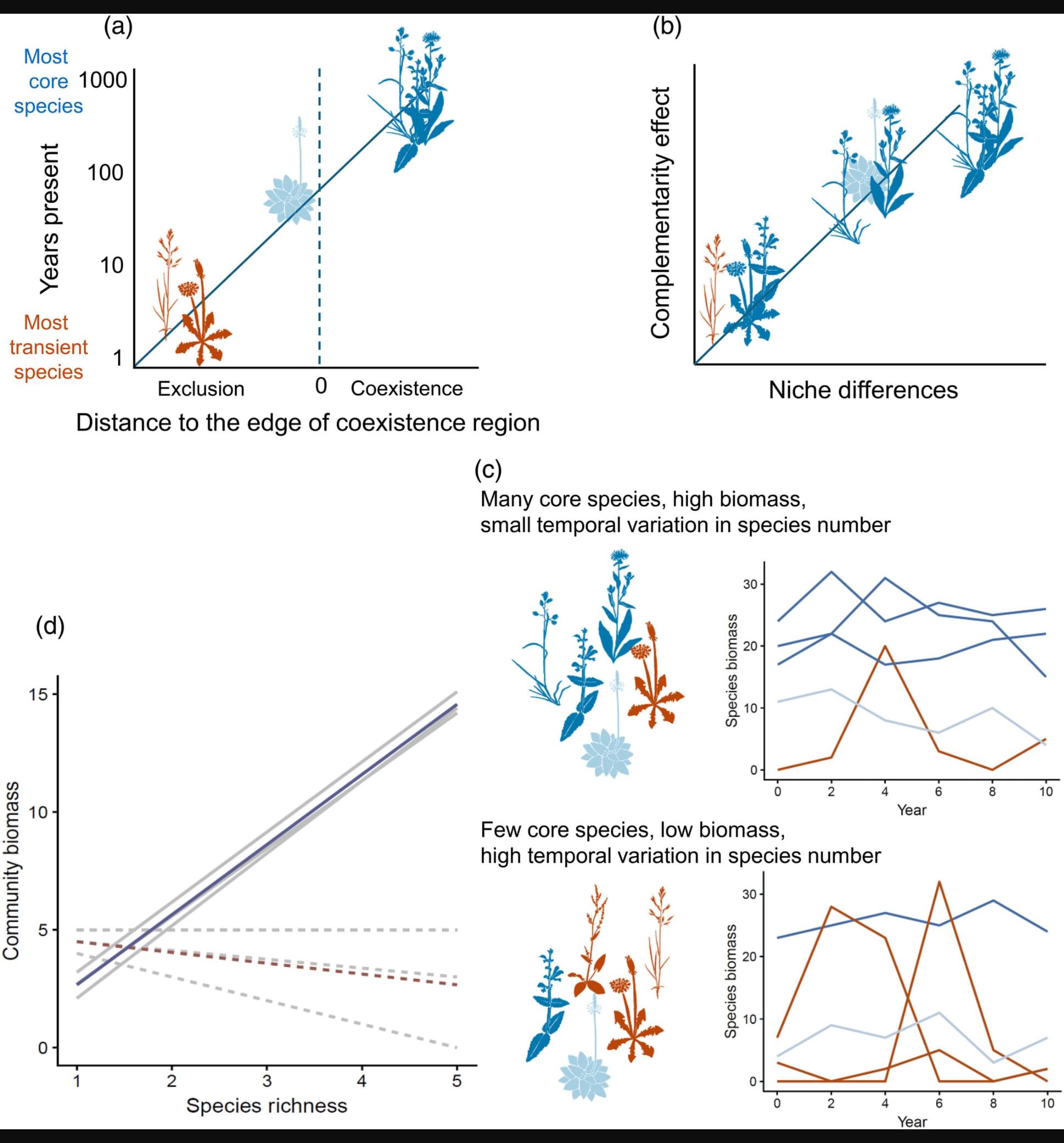Electrochemical cells—or batteries, as a well-known example—are complex technologies that combine chemistry, physics, materials science and electronics. More than power sources for everything from smartphones to electric vehicles, they remain a strong motivation for scientific inquiry that seeks to fully understand their structure and evolution at the molecular level.
A team led by Yingjie Zhang, a professor of materials science and engineering in The Grainger College of Engineering at the University of Illinois Urbana-Champaign, has completed the first investigation into a widely acknowledged but often overlooked aspect of electrochemical cells: the nonuniformity of the liquid at the solid-liquid interfaces in the cells.
As the researchers report in the Proceedings of the National Academy of Sciences, microscopic imaging revealed that these interfacial structures, called electrical double layers (EDLs), tend to organize into specific configurations in response to chemical deposition on the surface of the solid. The paper is titled “Nucleation at solid–liquid interfaces is accompanied by the reconfiguration of electrical double layers.”
